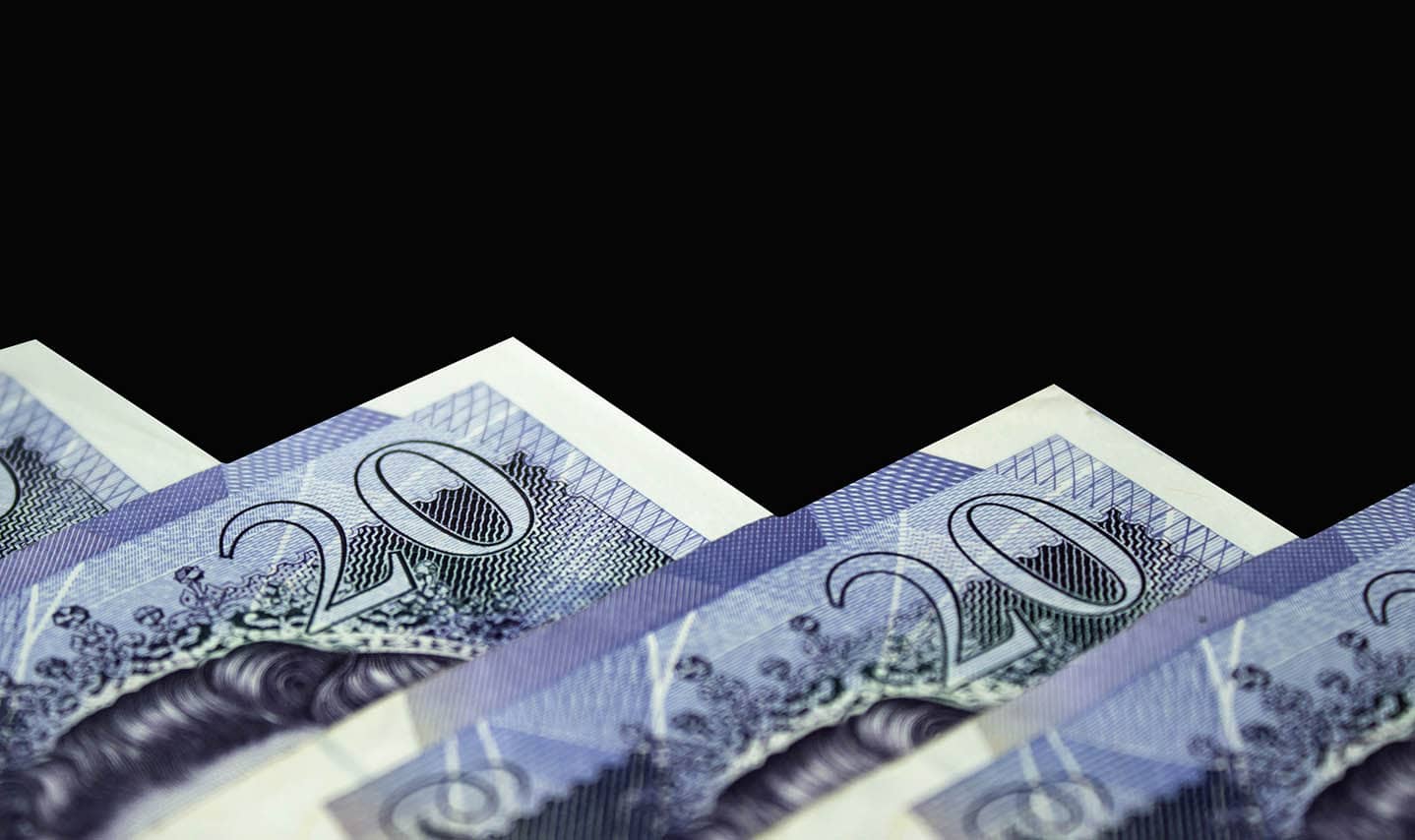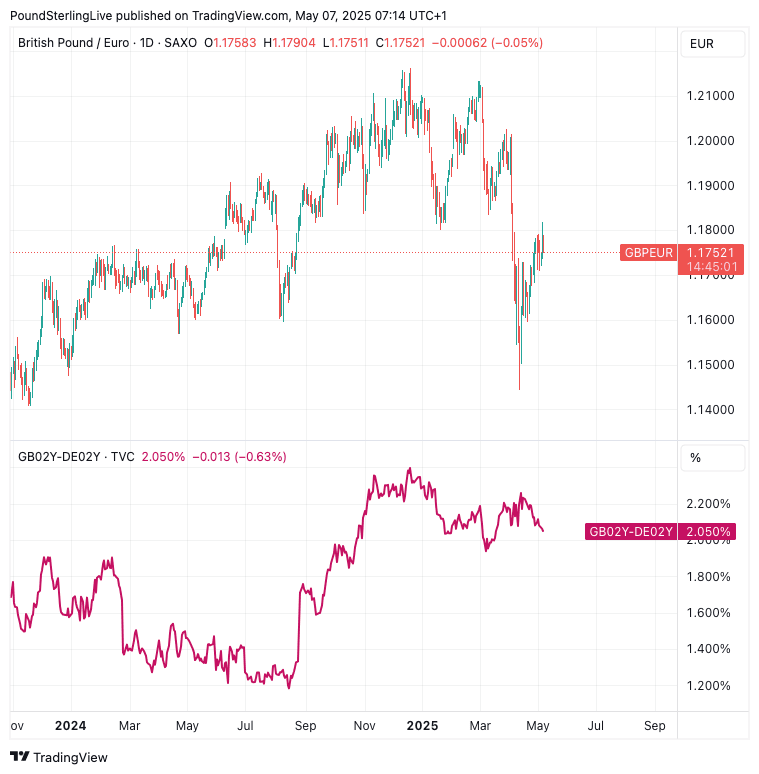
Image © Adobe Images
Pound Sterling can count on the support of the UK's higher interest rate regime, says a leading investment bank.
Crédit Agricole thinks the Pound is undervalued relative to the interest rate differential between the UK and Europe, which will allow it to "hold its ground" into the Bank of England's Thursday decision.
"The GBP’s relative underperformance further seems to contrast the fact that it retained its relative rate advantage vs its European peers," says Valentin Marinov, Head of G10 FX Strategy at Crédit Agricole.
Pound Sterling fell sharply against the Euro in the first half of April amidst a significant rise in global market volatility linked to the imposition of U.S. sanctions, that were far more severe than the markets were expecting.
However, volatility has since subsided, but the Pound has failed to recapture lost ground.
"As a result, the currency looks very undervalued vs the EUR according to our short-term fair value estimate that is based on the relative EUR-GBP rate spread among other FX drivers. We
therefore maintain a constructive outlook on the currency, especially vs its European peers," says Marinov.
A major determinant of value in the Pound to Euro exchange rate is the difference in interest rates as measured by the bond yields on offer between the UK and Germany, which currently favour Sterling.
The above chart shows the GBP to EUR conversion (top) and the difference in bond yields between the UK and Germany (UK-Germany 2y yield). Yields have stayed relatively elevated, but GBP/EUR dropped sharply in April and hasn't rediscovered levels consistent with the yield differential.
Analysts say that as market volatility retreats and traditional fundamental drivers retake control, the Pound should benefit from its undervaluation.
"With many negatives already in the price of the GBP, we expect it to hold its ground vs its European peers. In addition, we further expect a 'hawkish cut' by the BoE on Thursday to boost the outlook for the GBP some more," says Marinov.
The Bank of England will cut interest rates by 25 basis points but there is a significant degree of uncertainty as to how the guidance from the Bank might evolve.
If the Bank is to signal a quickening in the pace of future rate cuts, then the Pound can come under pressure. Such a 'dovish' pivot is seen as increasingly likely owing to risks associated with the trade war and recent economic data that shows a slowdown in UK economic activity.
But inflation is still too high and rising, which some economists argue against the Bank speeding up the pace at which it cuts rates. A 'hawkish' cut means the Bank cuts by 25 bp but maintains caution about speeding up owing to inflationary risks.
This, according to Crédit Agricole, is a reality that will be reflected in the Bank's latest guidance, which can ensure the Pound retains support.

